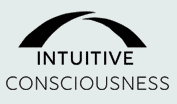Facilitation Skills For Everyone
In every organisation we all have opportunities to step into the leadership position. Just because we are not the designated leader, when we speak up in a group with an idea or a suggestion we have become a momentary or participant leader.
The problem is that many of us may feel shy or reluctant to step into the limelight and take a leadership or facilitation position. The more every participant in a team or organisation can speak out and assume participant leadership, the more empowered, efficient and energised the group becomes. This in turn transforms the culture to become open and dynamic and to be able to welcome new ideas and creative solutions.
The Process Skills of Leadership
Our work is also based on the concepts of Arnold Mindell and his Worldwork method of understanding groups, conflicts, power and leadership.
Understanding and having the process skills to facilitate the complexity and multiple aspects of the leadership role is central in order to lead and manage with wisdom and integrity. This is especially true if the team or group is beset with difficult dynamics, rank and power issues and underlying conflicts. Indeed, it is often these underlying processes and relationship dynamics in groups that ‘hijack’ the task that the group has come together to complete.
The fundamental process skills of a leader include some of the following:
- Understanding different relationship style and dynamics so that all feel included, empowered and energized
- Troubleshooting common issues such as dealing with challenging feedback, power and rank situations, communication difficulties, conflicts, or disturbing or troublesome colleagues
- Understanding the dynamics of power and conflict so that diversity is welcomed in a win-win atmosphere rather than fostering unhealthy competition, oppression or bullying
- Understanding the political structure inherent in any team, group or organization, to be able name such process signals, and to be able to facilitate and manage these group dynamics.
The Inner Work Skills Of Leadership
To be a leader we need to lead from the very best of us – a wise, impeccable and compassionate self- rather than from a wounded personality. The training teaches how to do the inner work required to maintain that impeccability when stepping forward into the leadership role. It is based on our transpersonal model Building Intuitive Consciousness. Here we learn to ‘stop and step out’ of our habitual or ego driven personality, and facilitate with perspective, neutrality and open-heartedness, welcoming all of the diverse voices in ourselves and in the system.
Without such a transpersonal gaze, we run the risk of becoming a ‘wounded leader’, using the power inherent in the leadership position to defend against our blindspots, and to oppress others. We may also fail to address disruptive dynamics in the group that might be building up in the background, such as signs of burn out or conflict.
The fundamental inner skills of a leader include some of the following:
- Understanding one’s own history, including blind spots and triggers, in order to lead with impeccability and openness
- Understanding how to do inner work or ‘burning one’s wood’ in the moment as a leader in order to develop your transpersonal gaze
- From that transpersonal perspective to become robust and fluid as a leader in order to be able to hold disruptive dynamics as a group, and enable increased contact and safety for all the members of the team.





